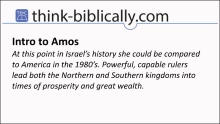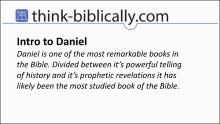
"Media" used to mean "print media" like books and newspapers, but the world has grown. Today media can also mean radio, television and movies delivered to personal computers, tablets and cell phones. As the world's best selling book of all time the Bible continues to make headlines, both good and bad, across all forms of media. Gallup poll shows Americans are losing their religion, former heavy metal guitarist returns to Korn to show the rockin' world the true Rock Jesus, and iPhone maker Apple removes a Christian app ministering to the LGBTQ community from their iOS store.

I read a lot of murder mysteries, and among the most common motives for murder is jealousy. It makes people ugly and can lead to even worse actions. This is how jealousy is presented most of the time, from novels to daytime dramas, but there is another definition for jealousy and it's a positive one. Imagine a jealousy that strives to vigilantly watch over a beloved one, to protect them from unfaithfulness and a passionate zeal for the object of his love. This second definition is the one behind the name El Kanna (also El Kanno) in the Old Testament.

Every Thursday for the last nearly 30 weeks we've been examining some of the names of God found in Scripture. We've got a ways to go still, but this Christmas seemed like a good time to remind everyone why we're doing this. It's not an exercise in academics, rather it is our hope that you find two or three names that strike a special chord with you, a name of God that encourages you and that can express itself in your prayer life. Due to the season, we thought it best to examine the four names of Jesus expressed by Isaiah.

From the time of Abraham God had purposed to build a nation of people who would be his own, apart from all the other nations. The Hebrew word used to describe them was kedoshim, a people set apart with respect to their way of life and interaction with YHWH. If this sounds familiar, it should. In English the word translates to "holy". Both people and things may be holy, but the holiest of all is the Lord God Almighty. It is little wonder then that we come across the name Elohim Kedoshim in Joshua 24.19, Holy God.

At this point in Israel’s history she could be compared to America in the 1980’s. Powerful, capable rulers lead both the Northern and Southern kingdoms into times of prosperity and great wealth. Judah’s influence of power spread as far as Egypt, and Israel had extended her borders just far enough north to control the major trade routes. Expensive homes were built to accommodate the new wealth. Morality, however, declined rapidly. The people’s private lives were bereft of spirituality despite a strong religious sense. Both kingdoms honored God through sacrifice, but their hearts and daily practices were far removed from Him.

"Media" used to mean "print media" like books and newspapers, but the world has grown. Today media can also mean radio, television and movies delivered to personal computers, tablets and cell phones. As the world's best selling book of all time the Bible continues to make headlines, both good and bad, across all forms of media. Iranian refugees in Turkey are turning to Jesus in unprecedented droves, Austria celebrates the 200th anniversary of a national song that has become a beloved Christmas carol the world over, and a stolen pocket Bible from the 1800's finds its way home for Christmas.

I think I heard it first on Laura Ingraham's show on Fox News, a story of a substitute teacher who told his first-grade class that Santa Claus isn't real. Most think it monstrous that a person trusted to attend to children would destroy their joy, but there is a growing group of individuals who applaud his effort. Dr. David Johnson wrote in Psychology Today (December 12, 2012) that parents should stop telling the Santa Claus lie because " (1) It's an unjustified lie, (2) it risks damaging your parental trustworthiness and (3) it encourages credulity and ill-motivated behavior."

"Media" used to mean "print media" like books and newspapers, but the world has grown. Today media can also mean radio, television and movies delivered to personal computers, tablets and cell phones. As the world's best selling book of all time the Bible continues to make headlines, both good and bad, across all forms of media. Renown physicist and author of the "string theory" Micho Kaku supports intelligent design of the universe, a signet ring found in 1968 is determined to be the seal of Pontius Pilot, and two men are miraculously spared when they heed the voice of God.

As 2018 comes to a close we at Think-Biblically.com pause to reflect on the way God has blessed us, and how we can do better in the future. This year we had our 5th birthday and celebrated over 800 posts on the website. When examining the metrics for the year, we learned some valuable lessons and a little bit more about our gentle readers. For example, the 6th most read post isn't even a post, it's our statement of faith. That tells me that our audience is savy who make sure that what they read agrees with the Word of God.

The author of Joel is a literal enigma; we've no information about him except his very common Hebrew name and his father's name, which was either Pethuel (Hebrew manuscripts) or Bethuel (the Septuagint). Joel didn't provide us any clues, either. Most prophets date their prophecy by kings or major historical events, but not Joel/ The few events he does describe — such as a locust plague, are common enough as to be unhelpful. This has caused a great many theories about when the book was written — theories spanning over 200 years of history! 830 BC? 760 BC? 595 BC? No one knows for certain.

Hosea began his ministry in a near golden age for Israel. His calling came at a time when Israel had experienced a period of military success leading to prosperity both the Northern and Southern kingdoms (2 Kings 14:25-28; 2 Chronicles 26:2, 6-15). During the first half of the eighth century Assyrian influence in the West had declined, allowing the kingdoms of Jeroboam II and Uzziah to flourish. But all that began well would not end as such. Hosea foresaw dire times ahead. The Assyrians under Tiglath-Pileser III (745-727 b.c.) were about to revive their expansionist policy westward.

Daniel is one of the most remarkable books in the Bible. Divided between it’s powerful telling of history and it’s prophetic revelations it has likely been the most studied book of the Bible. Even so, it is not without its detractors. Liberal scholars claim it is a complete work of fiction. Early on the complained that King Belshazzar (whose story is told in chapter five) never existed. Then in 1854 British Consul G J Taylor proved them wrong by unearthing ancient scrolls referring to the King's son, Belshazzar. As embarrasing as this was, it wouldn’t keep them from attempting to diminish this important text.

